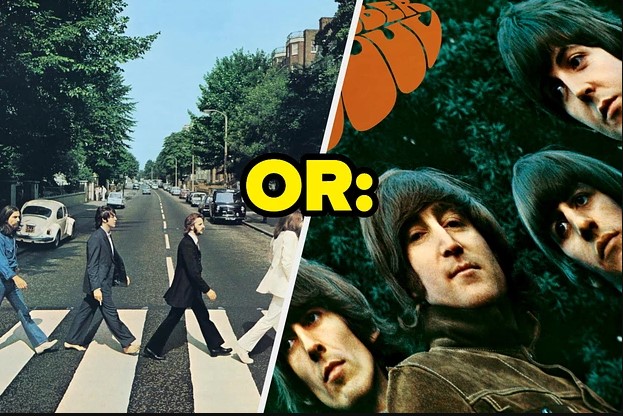Which Beatles Album Do You Need To Listen To Right Now?
What is the vibe?
Pick a video game
What are you ordering on Uber Eats?
Pick atelevision show
You're enjoying a night out on the town. What are you drinking?
Pick a movie
Pick someone famous to have lunch with:
You won the lottery! What's your first purchase?
You're going on a trip. Where?
Pick a dessert:
Which Beatles Album Do You Need To Listen To Right Now?
Please Please Me
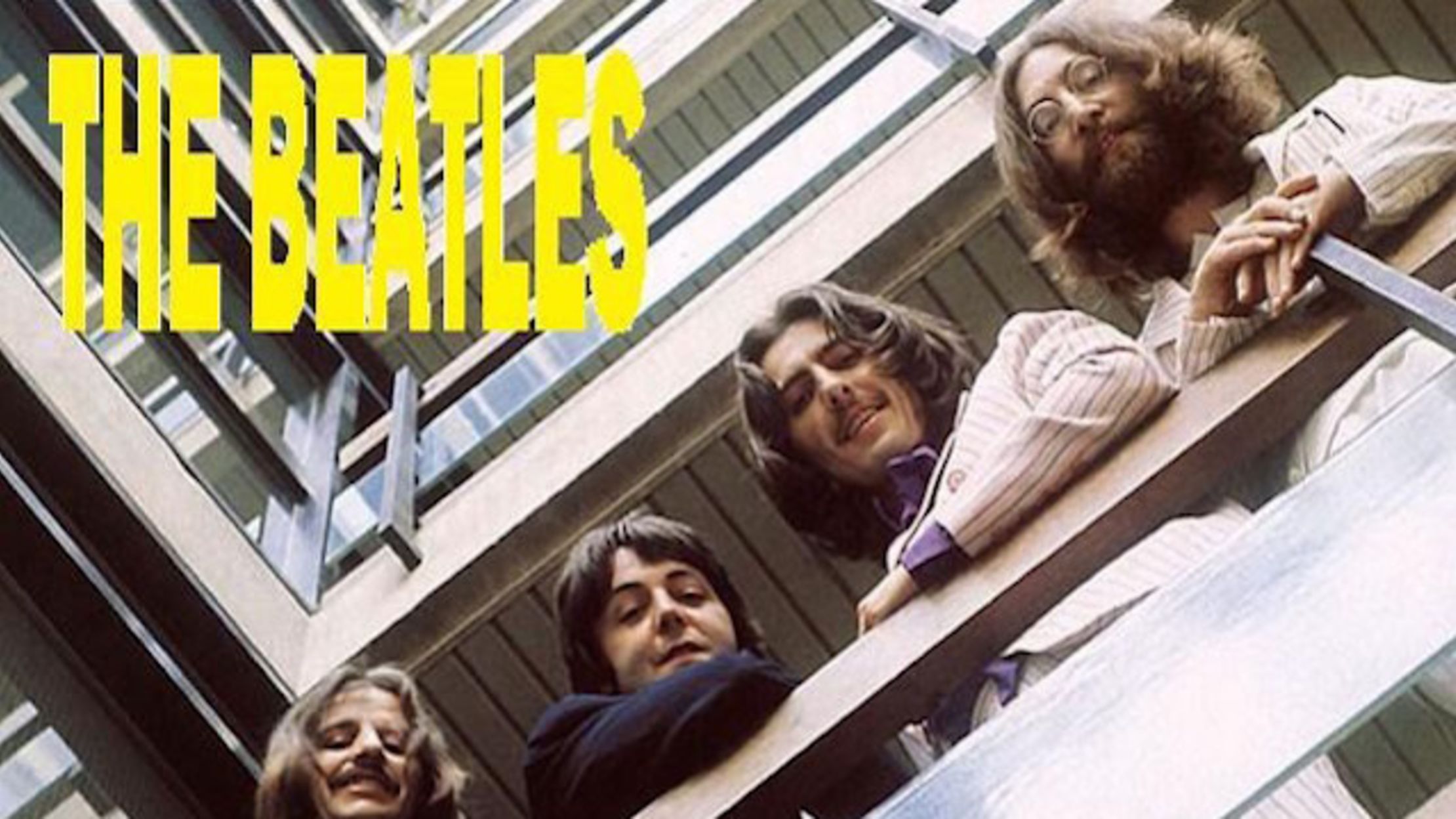
Please Please Me is the debut album by the English rock band the Beatles. Produced by George Martin, it was released on EMI's Parlophone label on 22 March 1963 in the United Kingdom, following the success of the band's singles "Please Please Me" and "Love Me Do", which reached number 1 on the NME and Melody Maker charts and number 17 on the UK Singles Chart, respectively. The album topped Record Retailer's LP chart for 30 weeks, an unprecedented achievement for a pop album at that time.
With the Beatles
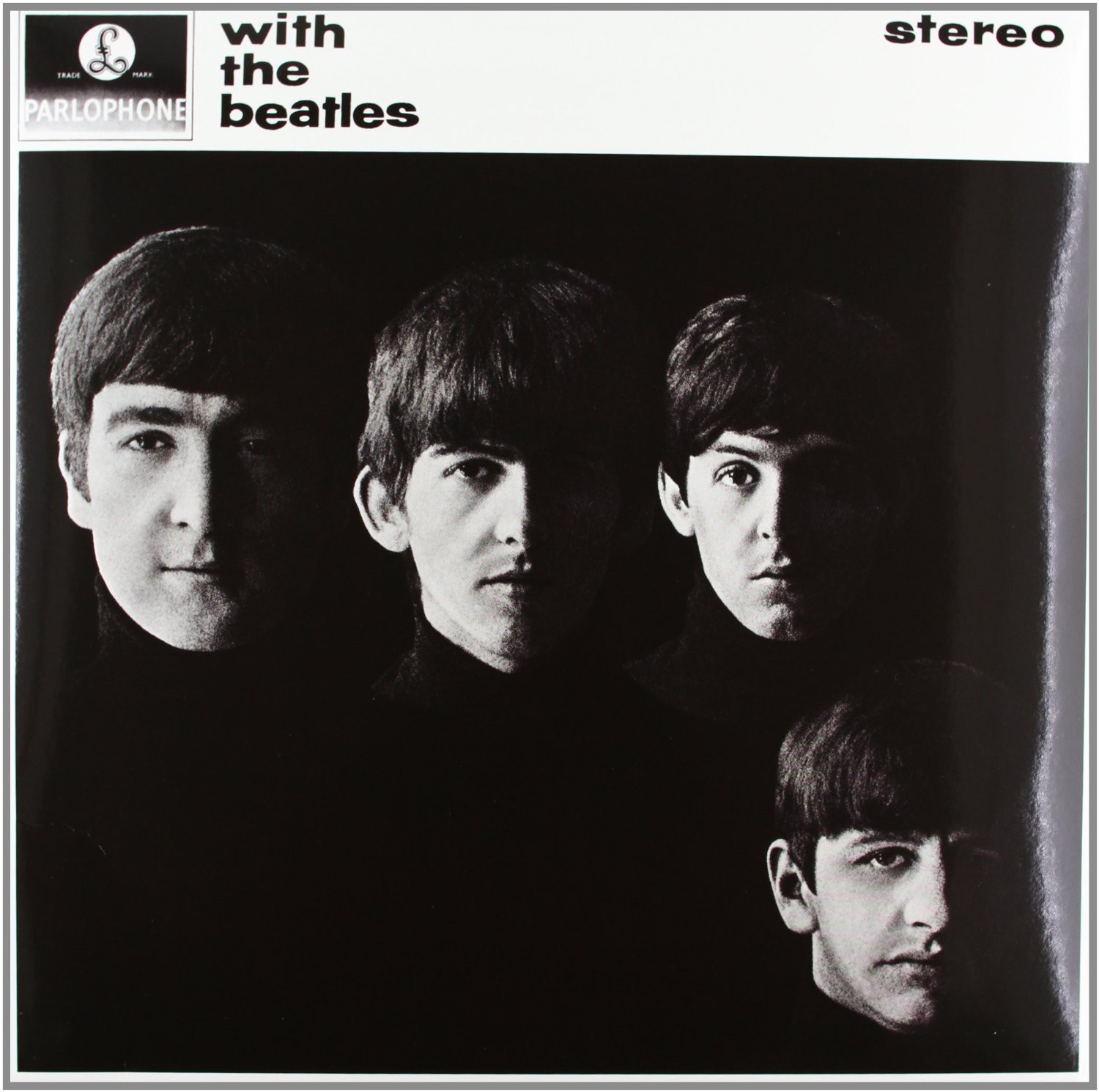
With the Beatles is the second studio album by the English rock band the Beatles. It was released on 22 November 1963 on Parlophone, exactly eight months after the band's debut Please Please Me. Produced by George Martin, the album features eight original compositions (seven by Lennon–McCartney and "Don't Bother Me", George Harrison's first recorded solo composition and his first released on a Beatles album) and six covers (mostly of Motown, rock and roll, and R&B hits). The cover photograph was taken by the fashion photographer Robert Freeman and has since been mimicked by several music groups over the years. A different cover was used for the Australian release of the album, which the Beatles were displeased with.
Introducing... The Beatles
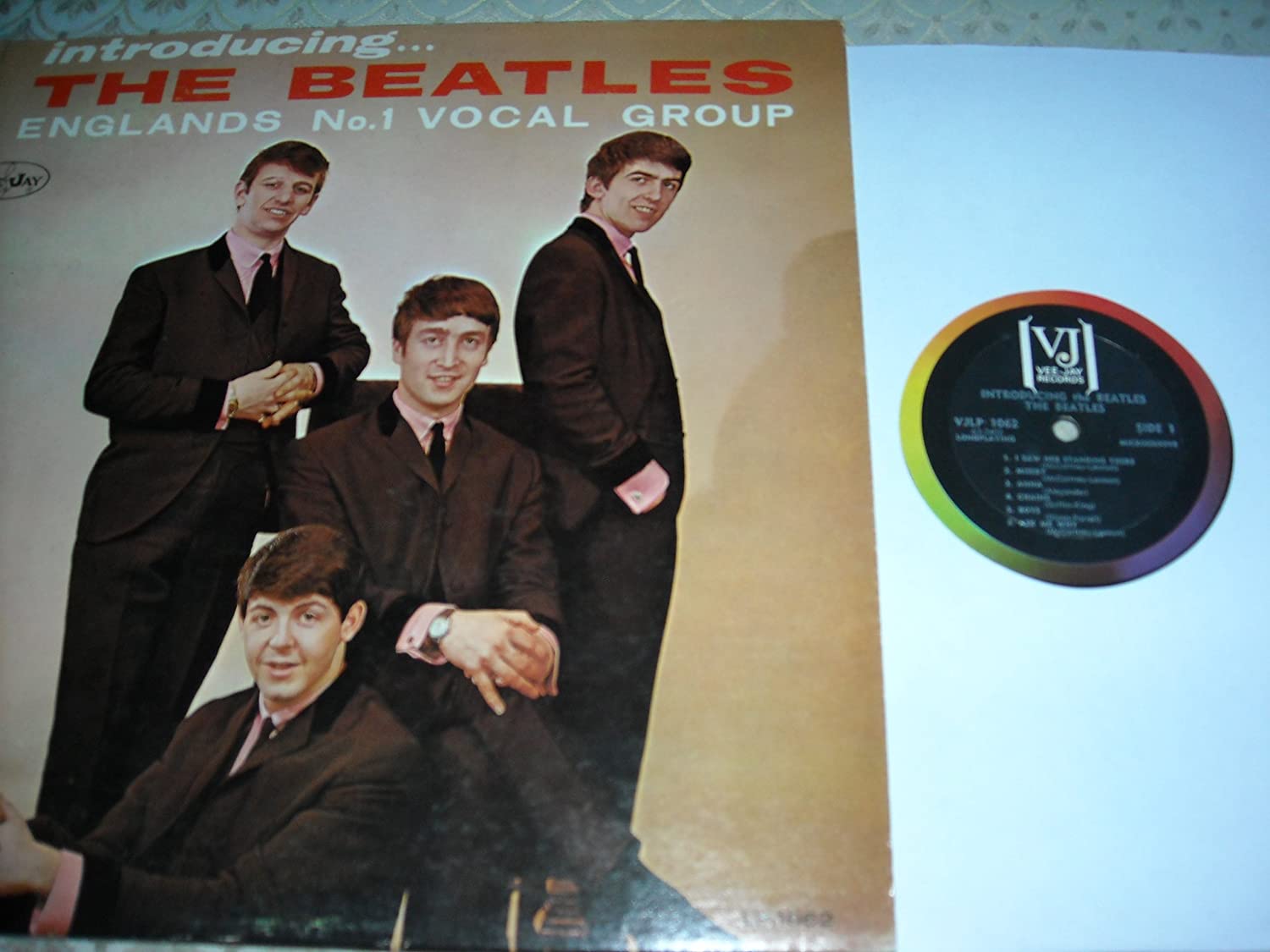
Introducing... The Beatles is the first Beatles album released in the United States. Originally scheduled for a July 1963 release, the LP came out on 10 January 1964, on Vee-Jay Records, ten days before Capitol's Meet the Beatles!. The latter album, however, entered the U.S. album chart one week before the former. Consequently, when Meet The Beatles! peaked at No. 1 for eleven consecutive weeks, Introducing...The Beatles stalled at No. 2 where it remained nine consecutive weeks. It was the subject of much legal wrangling, but ultimately, Vee-Jay was permitted to sell the album until late 1964, by which time it had sold more than 1.3 million copies. On 24 July 2014 the album was certified gold and platinum by the RIAA.
Meet the Beatles!
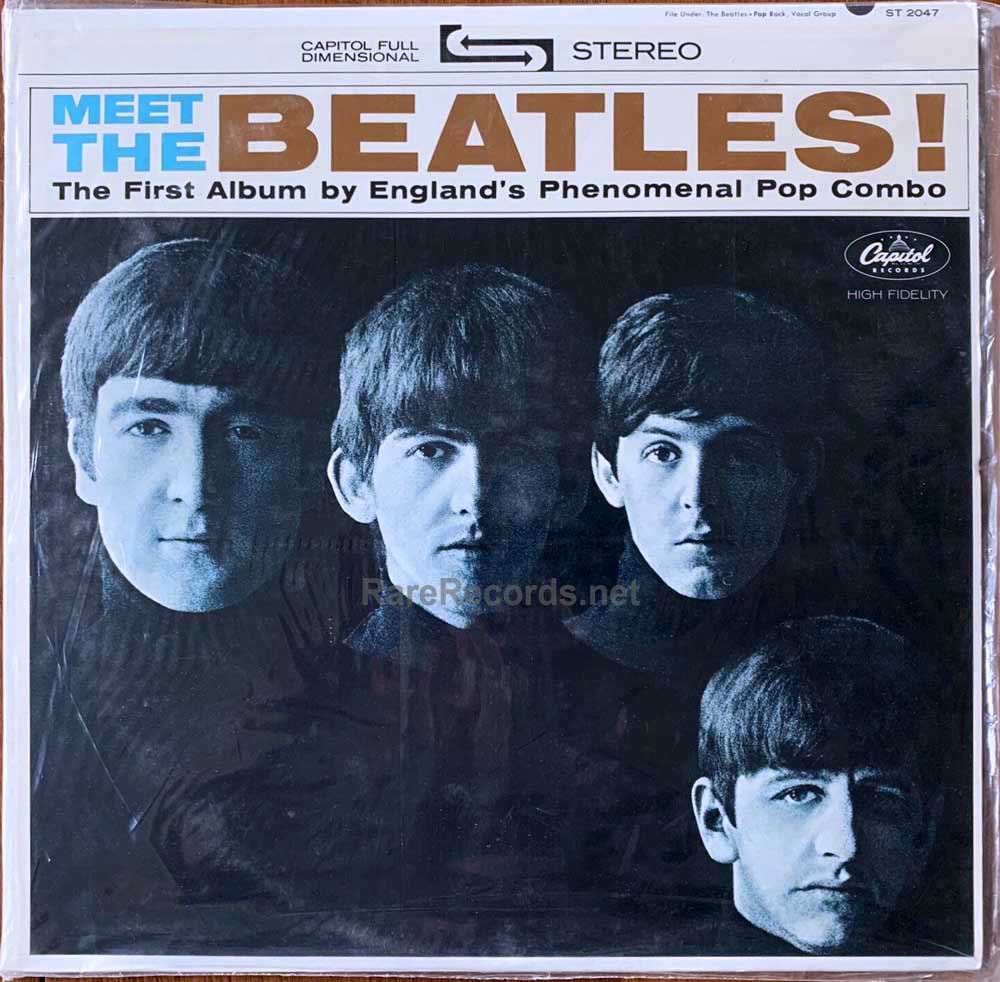
Meet the Beatles! is the second Beatles album released in the United States. It was the first US Beatles album to be issued by Capitol Records, on 20 January 1964 in both mono and stereo formats. It topped the popular album chart on 15 February 1964 and remained at number one for eleven weeks before being replaced by The Beatles' Second Album. The cover featured Robert Freeman's iconic portrait of the Beatles used in the United Kingdom for With the Beatles, with a blue tint added to the original stark black-and-white photograph.
Twist and Shout
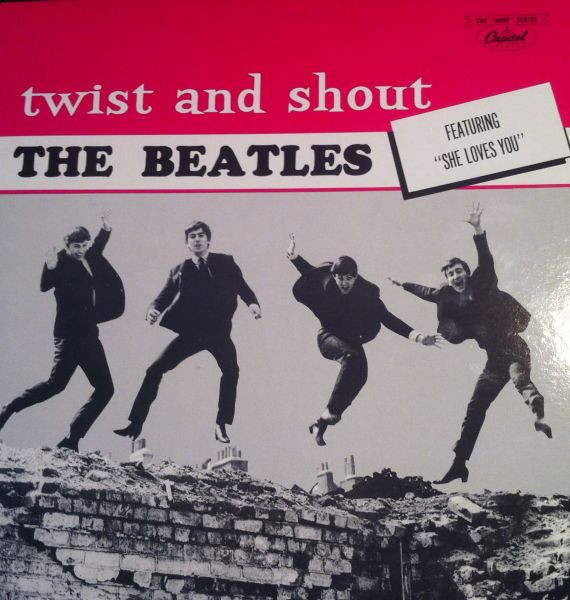
Twist and Shout was the Beatles' second album released in Canada, in mono by Capitol Records (catalogue number T-6054) on 3 February 1964. It consists of songs mostly drawn from Please Please Me, their first LP released in the United Kingdom. This album, like its parent album, contains both original Beatles songs, as well as covers (including its namesake, Twist and Shout), denoted in the track listing.
The Beatles' Second Album
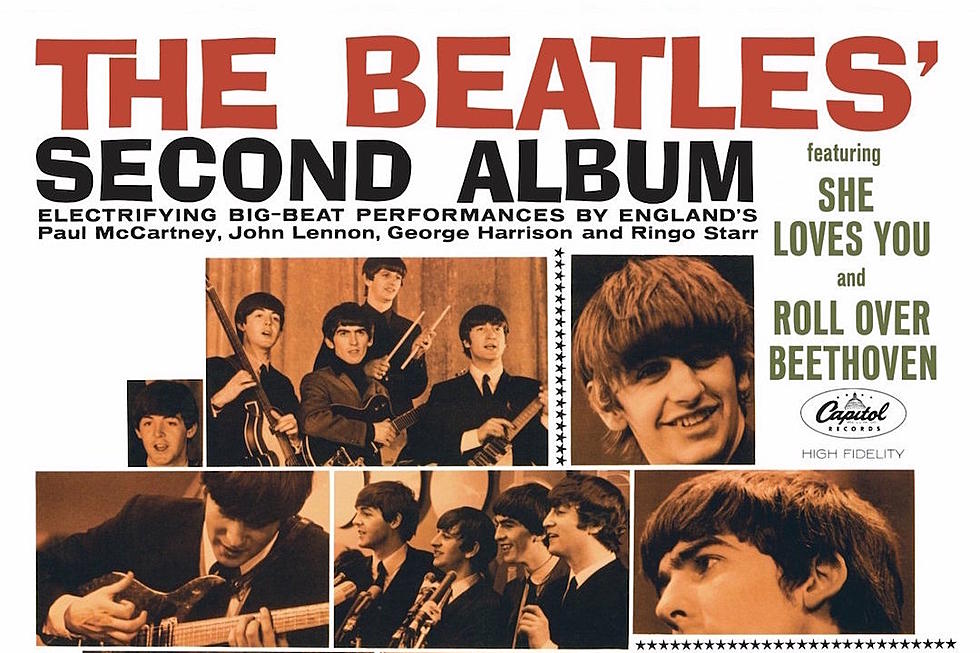
The Beatles' Second Album is the second Capitol Records album by the English rock band the Beatles, and their third album released in the United States including Introducing... The Beatles, which was issued three months earlier by Vee-Jay Records. Following its release in April 1964, The Beatles' Second Album replaced Meet the Beatles! at number 1 on the Billboard Top LPs chart in the US.
The Beatles' Long Tall Sally
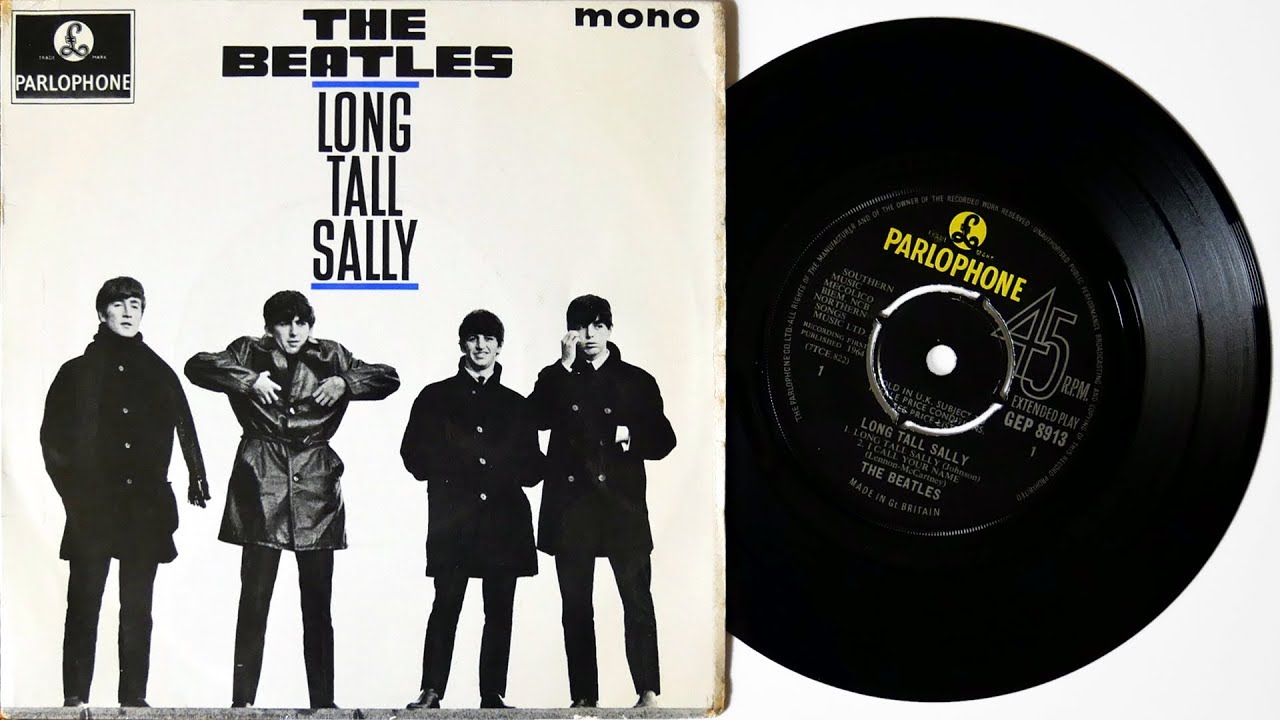
The Beatles' Long Tall Sally is an album by the English rock band the Beatles, their final album to be released exclusively in Canada. It was a mono release on the Capitol Records label (catalogue number T 6063) in May 1964.
After the release of this album, Beatles' records in Canada would match the group's United States releases, starting with the United Artists version of the A Hard Day's Night album, and, on Capitol, Something New. This was done under orders from Capitol president Alan W. Livingston. Earlier American Beatle album releases were also issued in Canada.
A Hard Day's Night
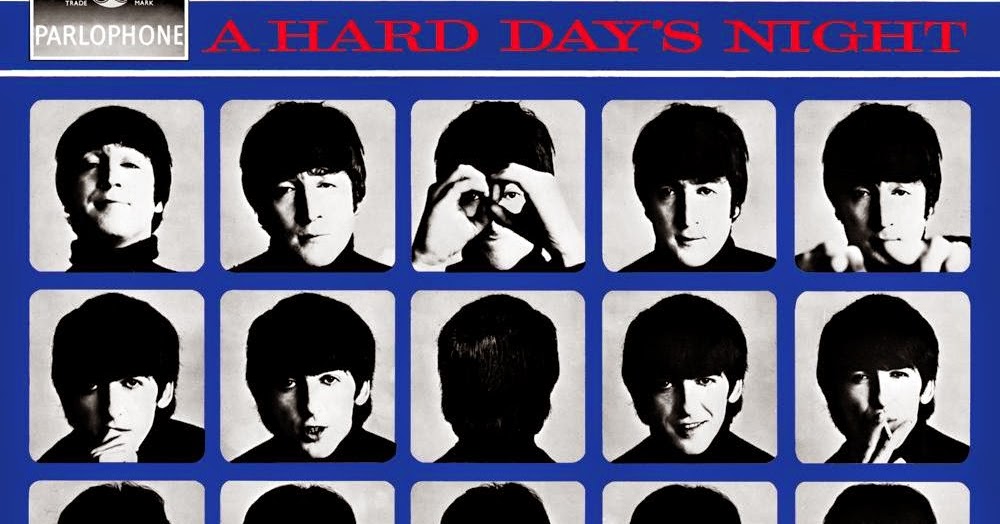
A Hard Day's Night is the third studio album by the English rock band the Beatles, released on 10 July 1964 by Parlophone, with side one containing songs from the soundtrack to their film of the same name. The American version of the album was released two weeks earlier, on 26 June 1964 by United Artists Records, with a different track listing. In contrast to the Beatles' first two albums, all 13 tracks on A Hard Day's Night were written by John Lennon and Paul McCartney, showcasing the development of their songwriting partnership.
Something New
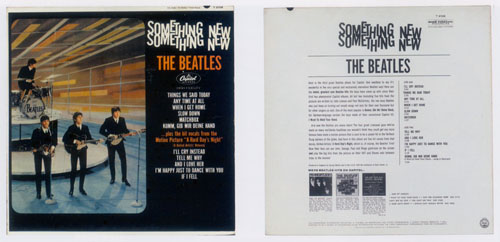
The album is the third Capitol LP release and fifth American album release overall by the band, following the United Artists release of A Hard Day's Night. Originally scheduled for 1 August 1964, the album was rush-released on 20 July 1964, ten days after the British release of A Hard Day's Night. The album includes eight songs from the original British release of A Hard Day's Night, as well as the tracks "Slow Down" and "Matchbox" from the Long Tall Sally EP and the German-language version of "I Want to Hold Your Hand".
Beatles for Sale
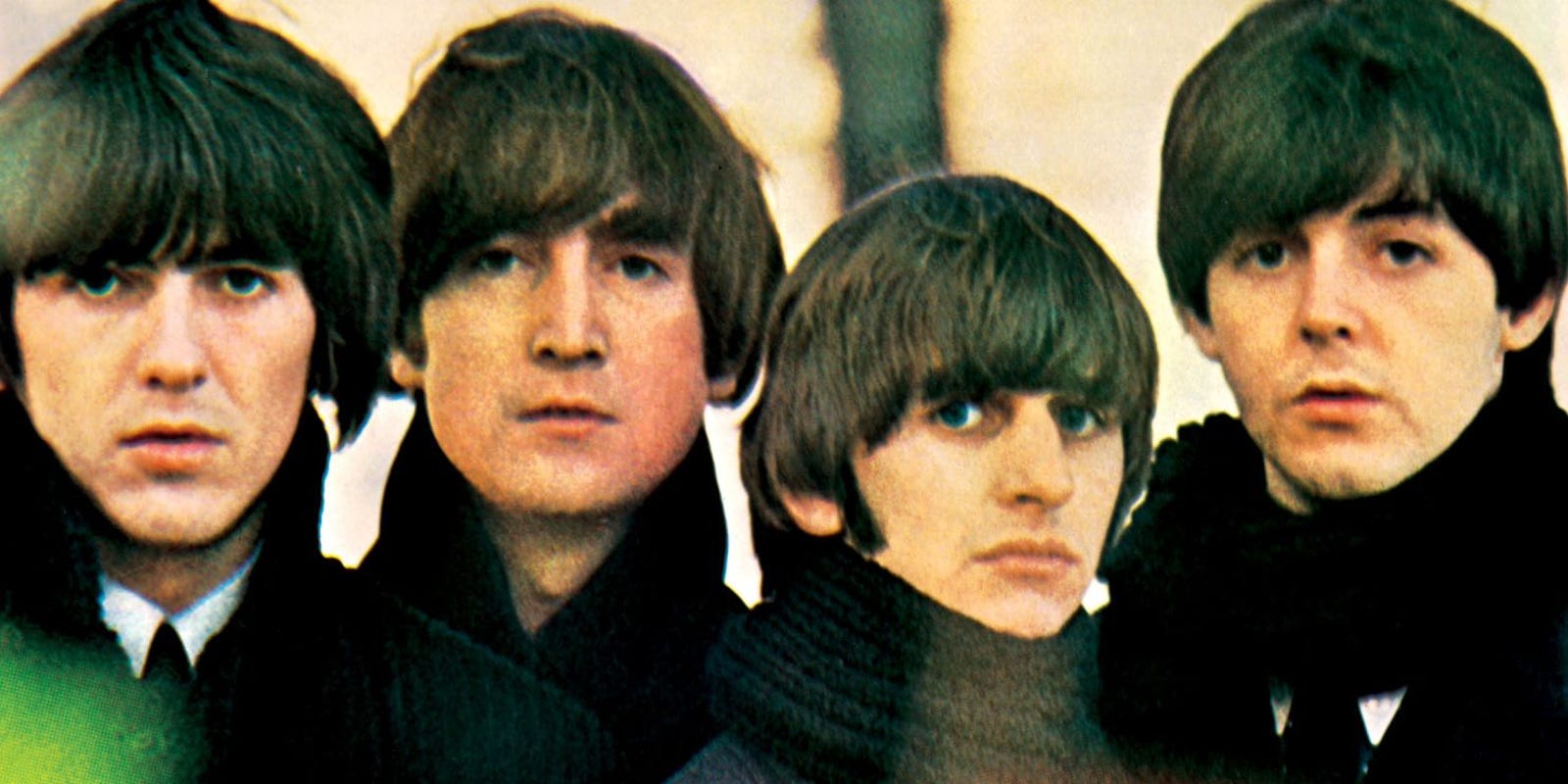
Beatles for Sale is the fourth studio album by the English rock band the Beatles. It was released on 4 December 1964 in the United Kingdom on EMI's Parlophone label. The album marked a departure from the upbeat tone that had characterised the Beatles' previous work, partly due to the band's exhaustion after a series of tours that had established them as a worldwide phenomenon in 1964. Beatles for Sale was not released in the US until 1987, when the Beatles' catalogue was standardised for release on CD. Instead, eight of the album's fourteen tracks appeared on Capitol Records' concurrent release, Beatles '65, issued in North America only.
Beatles '65
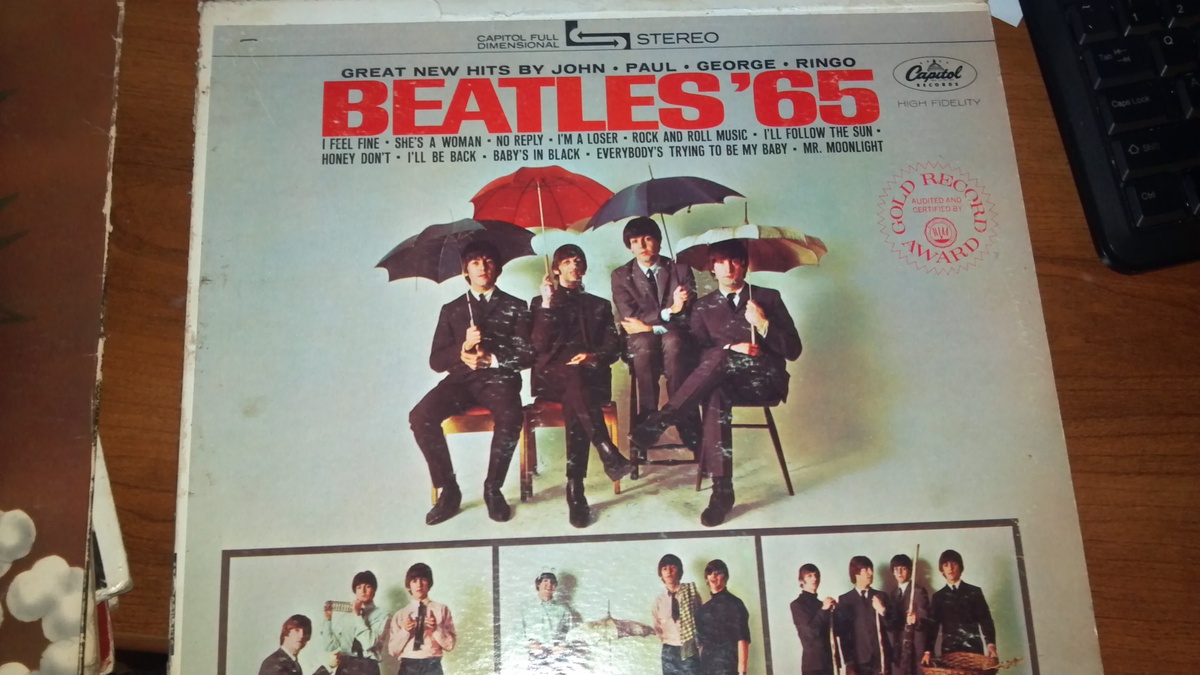
Beatles '65 is the Beatles' fifth album issued by Capitol Records, and their seventh American album. It was issued in December 1964. The LP was also issued in Germany on the Odeon label.
In 2004, Beatles '65 was issued on CD for the first time as part of The Capitol Albums, Volume 1 box set (catalogue number CDP 7243 8 66874 2 5) containing the US mixes for both mono and stereo. In 2014, the album was released on CD again, both individually, and included in the boxed set The US Albums, which contained the album's running order but with UK mixes as remastered in 2009.
Beatles VI
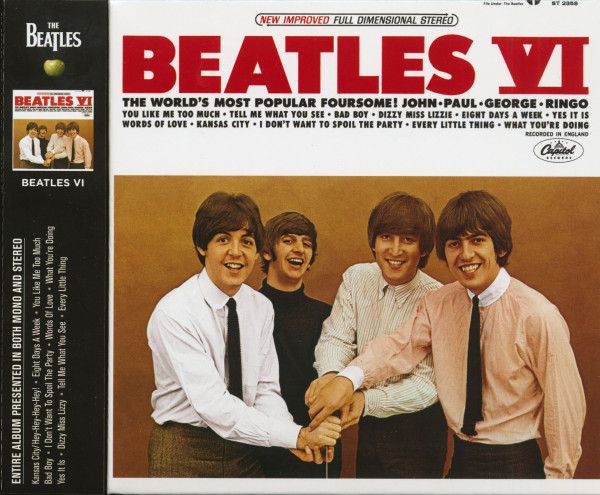
Beatles VI is the Beatles' seventh Capitol Records release in the United States and Canada (including The Beatles' Story). It was the ninth album released into that market in less than one and a half years (Vee-Jay Records and United Artists Records also released one album each during that period). The LP was released in both mono and stereo versions.
Beatles VI reached number one in Billboard for six weeks, beginning on 10 July 1965.
Help!

Help! is the fifth studio album by the English rock band the Beatles and the soundtrack from their film of the same name. It was released on 6 August 1965. Produced by George Martin, it was the fifth UK album release by the band, and contains fourteen songs in its original British form. Seven of these, including the singles "Help!" and "Ticket to Ride", appeared in the film and took up the first side of the vinyl album. The second side contained seven other releases including the most-covered song ever written, "Yesterday".
Rubber Soul
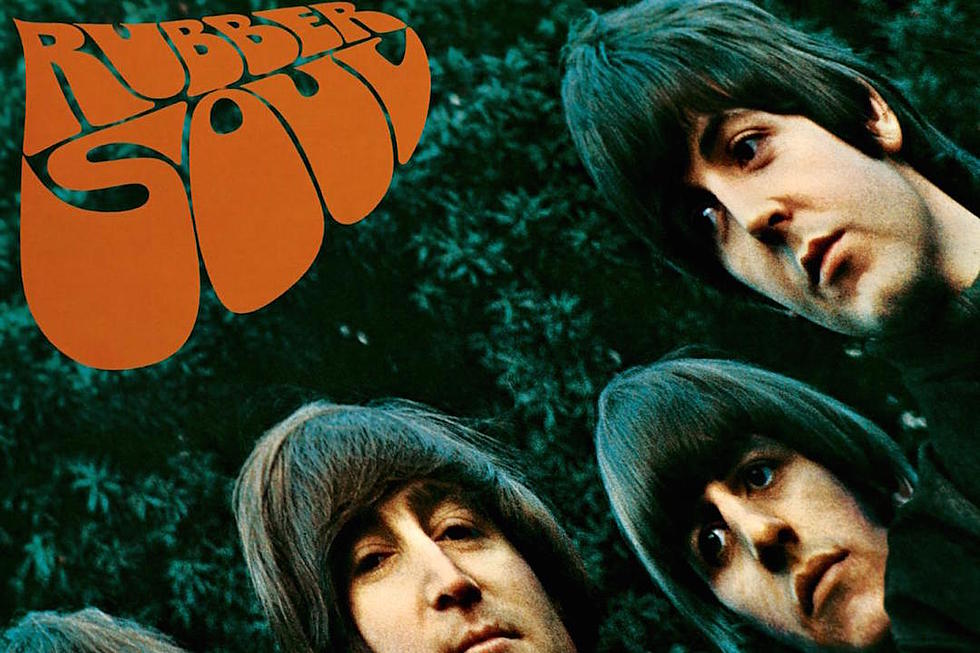
Rubber Soul is the sixth studio album by the English rock band the Beatles. It was released on 3 December 1965 in the United Kingdom, on EMI's Parlophone label, accompanied by the non-album double A-side single "Day Tripper" / "We Can Work It Out". The original North American version of the album, issued by Capitol Records, contained ten of the fourteen songs and two tracks withheld from the band's Help! album. Rubber Soul met with a highly favourable critical response and topped sales charts in Britain and the United States for several weeks.
Yesterday and Today
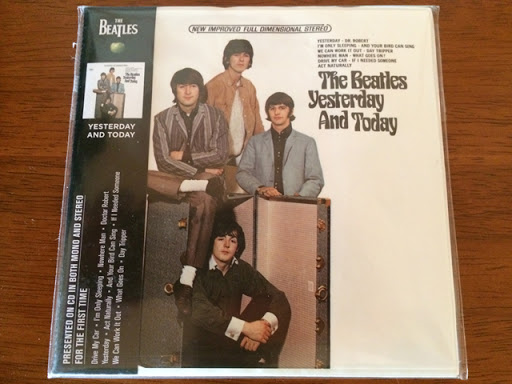
Yesterday and Today (also rendered as "Yesterday" ... and Today in part of the original packaging) is a studio album by the English rock band the Beatles. Released in the United States and Canada in June 1966, it was their ninth album issued on Capitol Records and twelfth American release overall. Typical of the Beatles' North American discography until 1967, the album contains songs that Capitol had withheld from its configurations of the band's recent EMI albums, along with songs that the group had released elsewhere on non-album singles. Among its 11 tracks are songs from the EMI albums Help! and Rubber Soul, and three new 1966 recordings that would appear on Revolver in countries outside North America.
Revolver
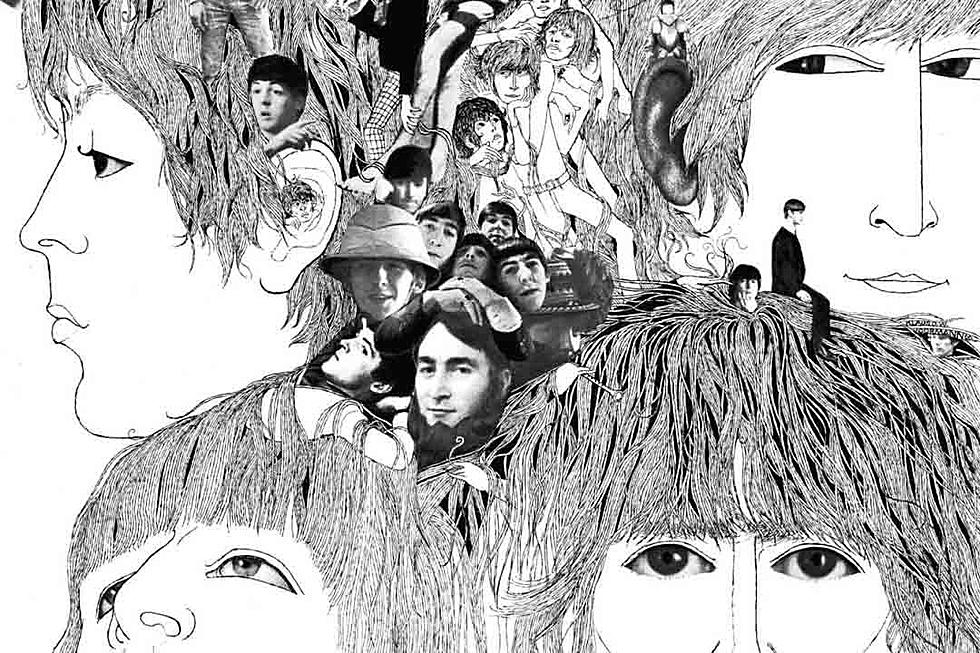
Revolver is the seventh studio album by the English rock band the Beatles. It was released on 5 August 1966, accompanied by the double A-side single "Eleanor Rigby" / "Yellow Submarine". The album was the Beatles' final recording project before their retirement as live performers and marked the group's most overt use of studio technology to date, building on the advances of their late 1965 release Rubber Soul. It has since become regarded as one of the greatest and most innovative albums in popular music, with recognition centred on its range of musical styles, diverse sounds, and lyrical content.
Sgt. Pepper's Lonely Hearts Club Band
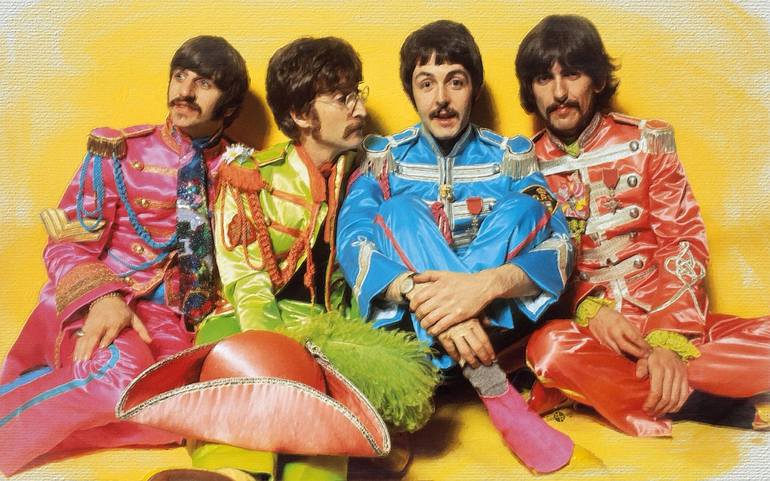
Sgt. Pepper's Lonely Hearts Club Band is the eighth studio album by the English rock band the Beatles. Released on 26 May 1967, it spent 27 weeks at number one on the Record Retailer chart in the United Kingdom and 15 weeks at number one on the Billboard Top LPs chart in the United States. It was lauded by critics for its innovations in songwriting, production and graphic design, for bridging a cultural divide between popular music and high art, and for reflecting the interests of contemporary youth and the counterculture. Its release was a defining moment in 1960s pop culture, heralding the Summer of Love, while the album's reception achieved full cultural legitimisation for pop music and recognition for the medium as a genuine art form. It won four Grammy Awards in 1968, including Album of the Year, the first rock LP to receive this honour.
Magical Mystery Tour
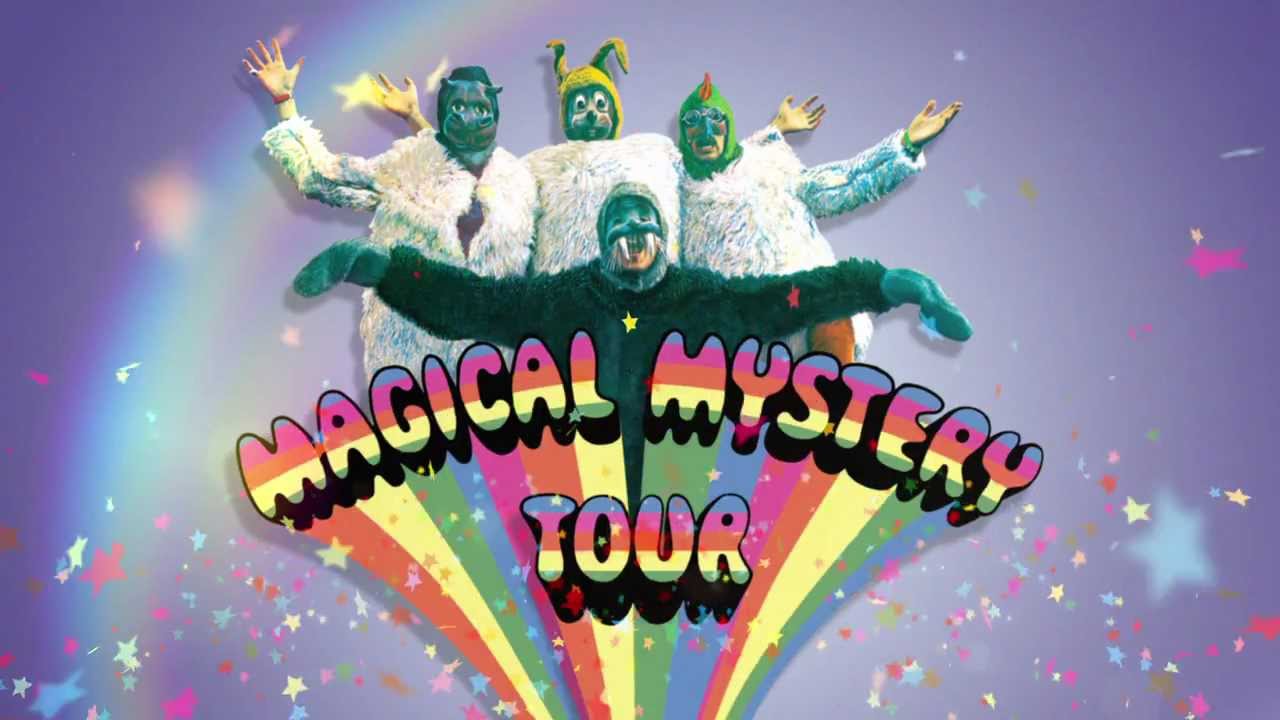
Magical Mystery Tour is a record by the English rock band the Beatles that was released as a double EP in the United Kingdom and an LP in the United States. It includes the soundtrack to the 1967 television film of the same name. The EP was issued in the UK on 8 December 1967 on the Parlophone label, while the Capitol Records LP release in the US occurred on 27 November and featured an additional five songs that were originally released as singles that year. In 1976, Parlophone released the eleven-track LP in the UK.
The Beatles ("The White Album")
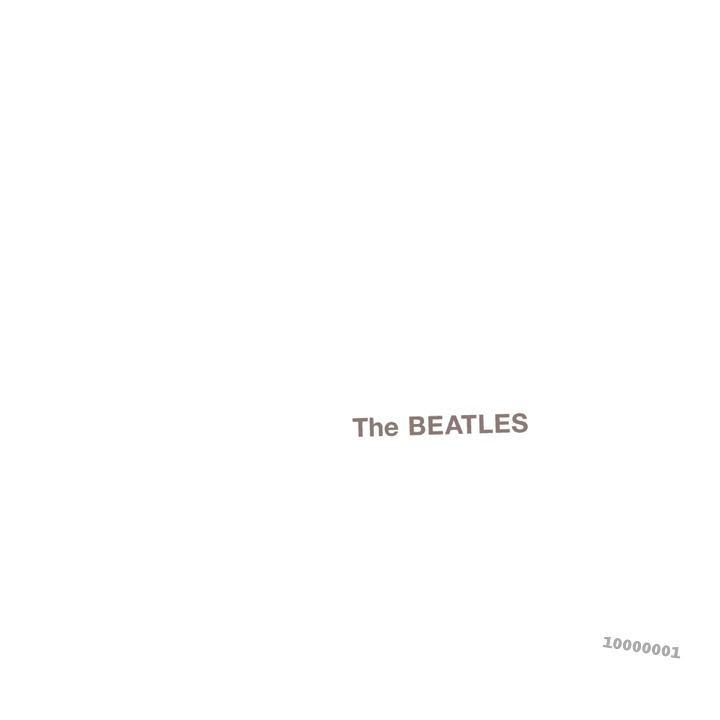
The Beatles, also known as the White Album, is the ninth studio album and only double album by the English rock band the Beatles, released on 22 November 1968. Its plain white sleeve has no graphics or text other than the band's name embossed,[a] which was intended as a direct contrast to the vivid cover artwork of the band's previous LP Sgt. Pepper's Lonely Hearts Club Band. The Beatles is recognised for its fragmentary style and diverse range of genres, including folk, British blues, ska, music hall and the avant-garde. It has since been viewed by some critics as a postmodern work, as well as among the greatest albums of all time.
Yellow Submarine
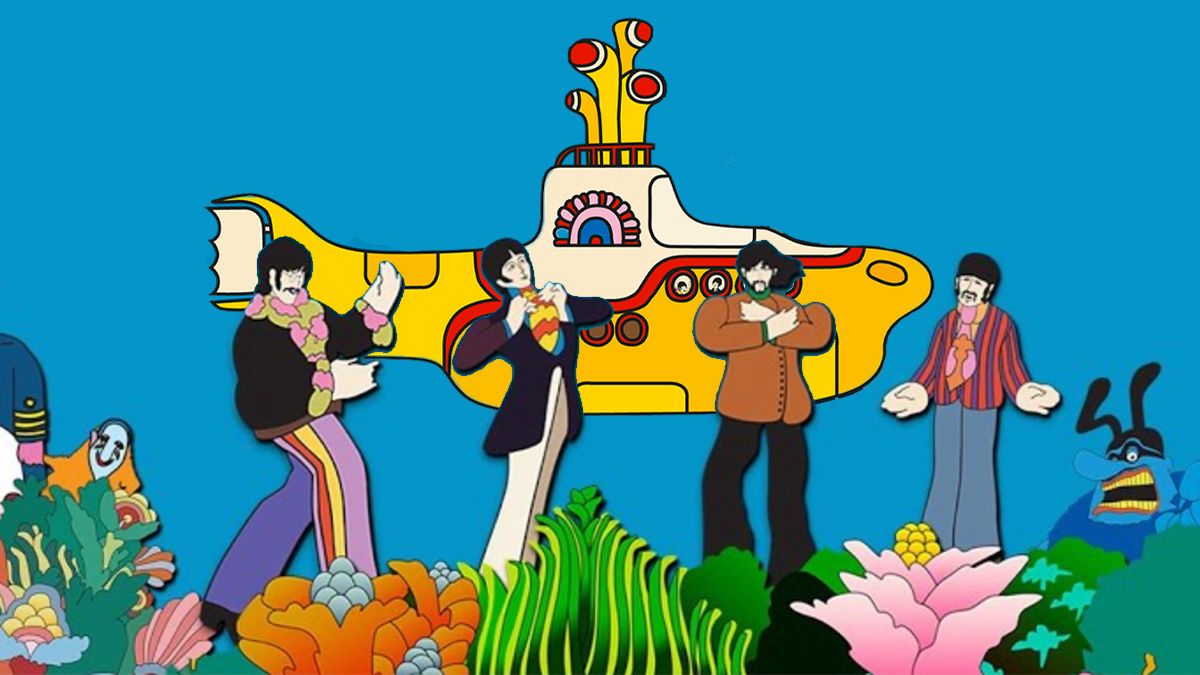
Yellow Submarine is the tenth studio album by English rock band the Beatles, released on 13 January 1969 in the United States and on 17 January in the United Kingdom. It was issued as the soundtrack to the animated film of the same name, which premiered in London in July 1968. The album contains six songs by the Beatles, including four new songs and the previously released "Yellow Submarine" and "All You Need Is Love". The remainder of the album is a re-recording of the film's orchestral soundtrack by the band's producer, George Martin.
Abbey Road
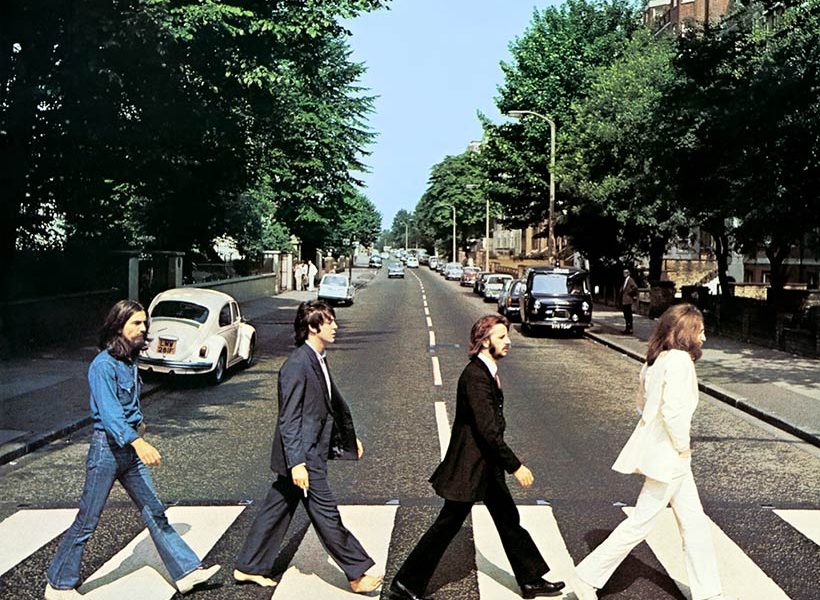
Abbey Road is the eleventh studio album by the English rock band the Beatles, released on 26 September 1969 by Apple Records. Named after the location of EMI Studios in London, the cover features the group walking across the street's zebra crossing, an image that became one of the most famous and imitated in popular music. The album's initially mixed reviews were contrasted by its immediate commercial success, topping record charts in the UK and US. The lead single "Something" / "Come Together" was released in October and topped US charts.
Let It Be
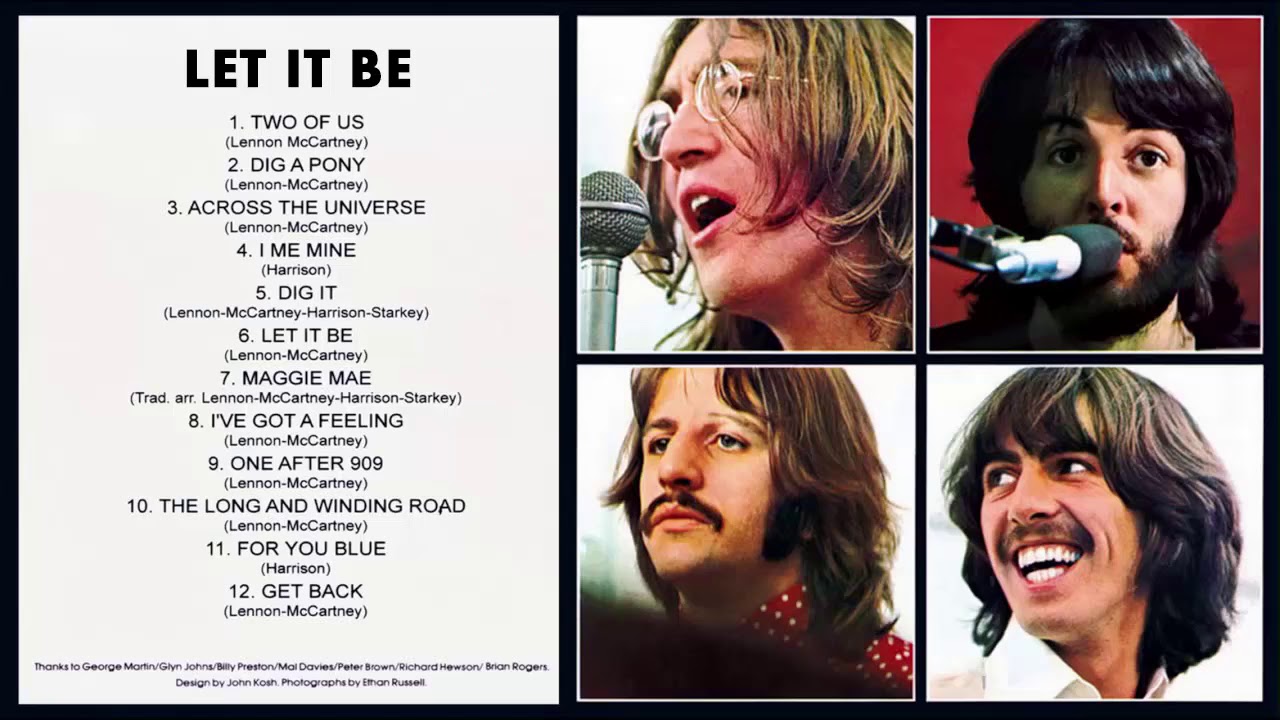
Let It Be is the twelfth and final studio album by the English rock band the Beatles. It was released on 8 May 1970, almost a month after the group's break-up, in tandem with the motion picture of the same name. Like most of the band's previous releases, the album topped record charts in many countries, including both the US and the UK. However, the critical response was generally unfavourable, and Let It Be came to be regarded as one of the most controversial rock albums ever.
Share your Results:
